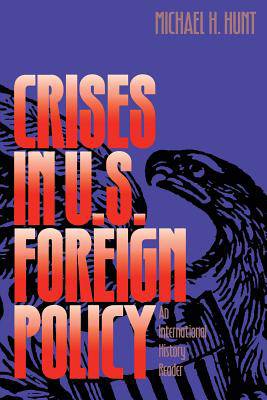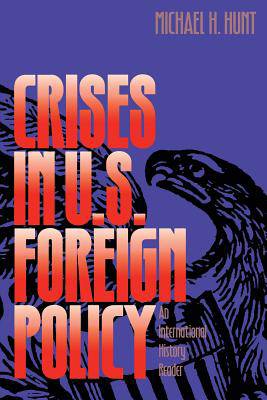
- Afhalen na 1 uur in een winkel met voorraad
- Gratis thuislevering in België vanaf € 30
- Ruim aanbod met 7 miljoen producten
- Afhalen na 1 uur in een winkel met voorraad
- Gratis thuislevering in België vanaf € 30
- Ruim aanbod met 7 miljoen producten
Zoeken
€ 100,45
+ 200 punten
Omschrijving
Repeatedly in the twentieth century, the United States has been involved in confrontations with other countries, each with the potential for widespread international and domestic upheaval, even disaster. In this book Michael Hunt focuses on seven such crises, presenting for each an illuminating introduction and a rich collection of original documents. His epilogue considers the nature of international crises and the U.S. record in dealing with them.
The case studies include:
-the American entry into World War I the Japanese-American rivalry that led to Pearl Harbor
-the origins of the U.S.-Soviet Cold War
-the collision between China and the United States during the Korean War
-the confrontation over Soviet missiles in Cuba
-Lyndon Johnson`s commitment to war in Vietnam
-and the American entanglement in the Iranian revolution
The studies allow the reader to see U.S. foreign policymaking firsthand and to understand it as something that is shaped by interactions with other nations and leaders as well as by American values, attitudes, and needs. To provide an international perspective, both the narrative and the documents give as much attention to foreign policymakers as to their American counterparts, emphasizing the invariably dynamic, often confused, and sometimes chaotic interaction between the two sides.
The case studies include:
-the American entry into World War I the Japanese-American rivalry that led to Pearl Harbor
-the origins of the U.S.-Soviet Cold War
-the collision between China and the United States during the Korean War
-the confrontation over Soviet missiles in Cuba
-Lyndon Johnson`s commitment to war in Vietnam
-and the American entanglement in the Iranian revolution
The studies allow the reader to see U.S. foreign policymaking firsthand and to understand it as something that is shaped by interactions with other nations and leaders as well as by American values, attitudes, and needs. To provide an international perspective, both the narrative and the documents give as much attention to foreign policymakers as to their American counterparts, emphasizing the invariably dynamic, often confused, and sometimes chaotic interaction between the two sides.
Specificaties
Betrokkenen
- Auteur(s):
- Uitgeverij:
Inhoud
- Aantal bladzijden:
- 460
- Taal:
- Engels
Eigenschappen
- Productcode (EAN):
- 9780300065978
- Verschijningsdatum:
- 24/01/1996
- Uitvoering:
- Paperback
- Formaat:
- Trade paperback (VS)
- Afmetingen:
- 155 mm x 234 mm
- Gewicht:
- 653 g

Alleen bij Standaard Boekhandel
+ 200 punten op je klantenkaart van Standaard Boekhandel
Beoordelingen
We publiceren alleen reviews die voldoen aan de voorwaarden voor reviews. Bekijk onze voorwaarden voor reviews.








